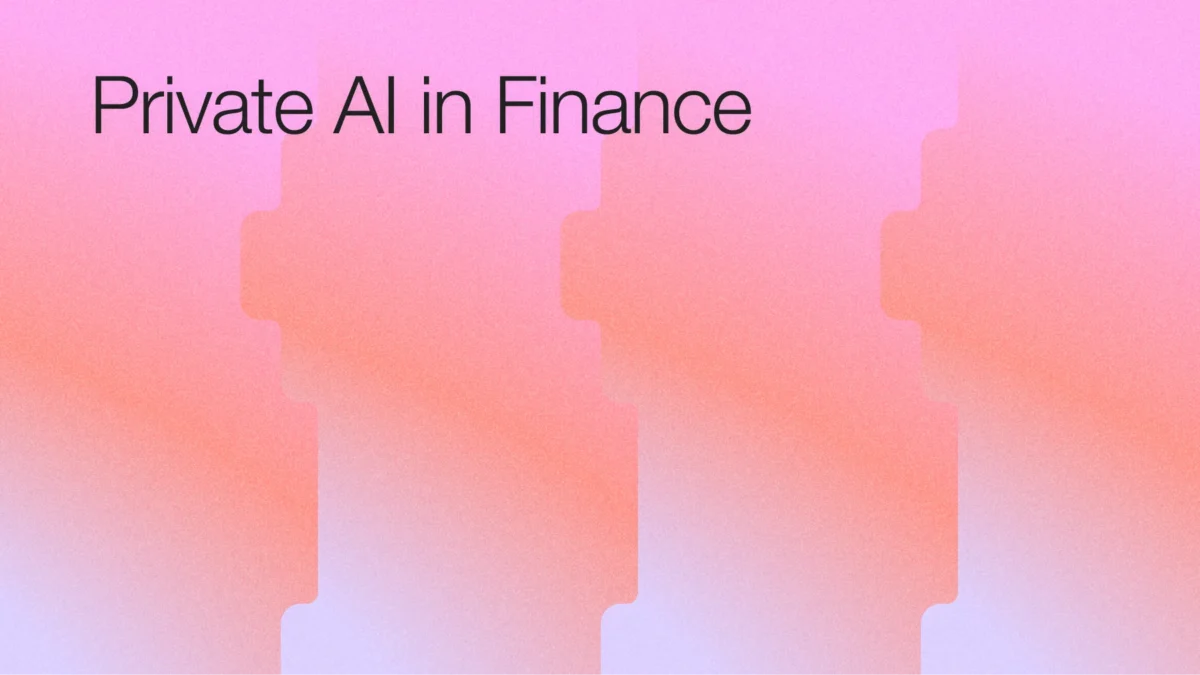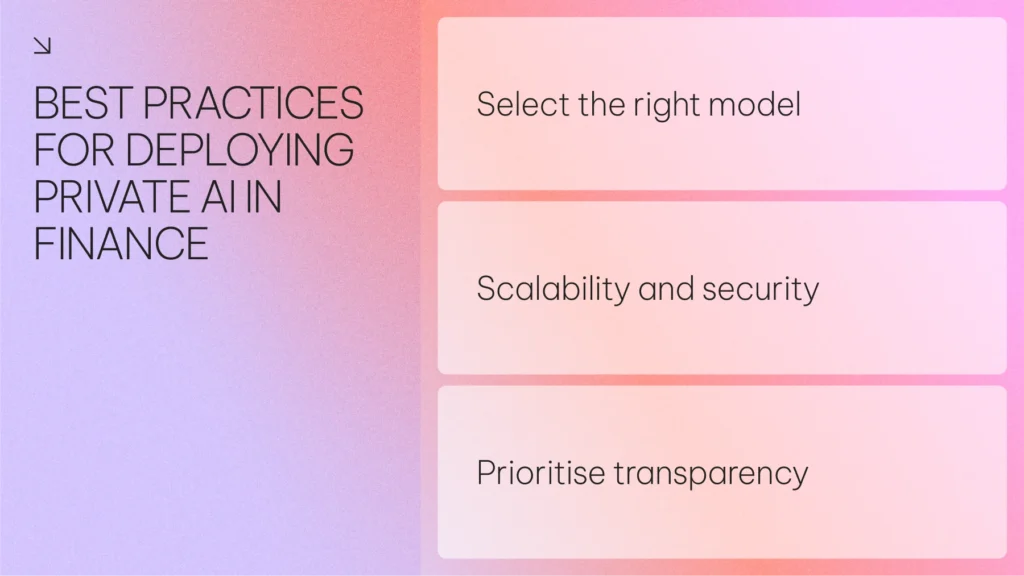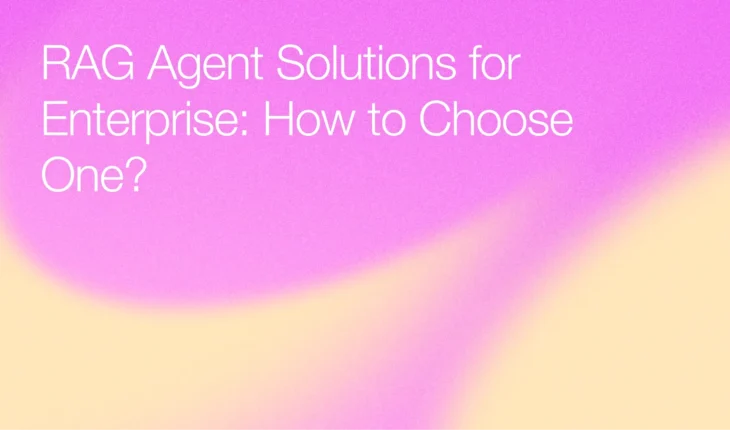Table of Contents

Why Private AI Is the Future of Finance
The global average cost of a data breach reached $4.88M in 2024, the highest ever recorded. For finance businesses considering AI adoption, this news could make even the most innovative leaders feel uneasy.
The solution to balancing security with the benefits of AI? Private AI. Private AI in finance is all but essential. It’s the method of deploying AI in secure environments with the proper security measures, helping keep sensitive data where it needs to be.
There are costs associated with private AI that may deter some leaders from getting involved; however, it’s worth noting that the IBM report referenced above shows that organizations that use security AI and automation extensively save an average of $2.22 million per breach.
This article will examine how private AI in finance enables institutions to reduce risk, enhance operational efficiency, and meet stringent compliance requirements. We’ll examine key use cases and explain how private AI enables the secure adoption of advanced tools, such as generative AI.
What is private AI in finance?
Private AI in financial services refers to the deployment of AI in secure, controlled environments, such as on-premises or in secure colocation facilities, using techniques like data encryption, anonymization, and private networking.
Private AI in financial services addresses privacy, security, and compliance concerns, supporting regulations such as the GDPR, GLBA, PDPA, and the EU AI Act.
Unlike public AI, which carries the risk of data exposure. Private AI allows the secure use of AI for various purposes, from fraud detection to customer service. It does so with increasing accuracy, mainly when tools like Retrieval Augmented Generation (RAG) are used to improve accuracy.
Private AI is typically on-premises or via a Virtual Private Cloud (VPC), offering isolated cloud environments.
What are typical applications for private AI in finance?
Private AI enables secure and compliant AI innovation in a sector where trust is crucial. Here are a few examples of its most suitable applications:
Fraud detection and prevention
Private AI can be used to facilitate the secure, real-time analysis of transaction data within institution-controlled environments. When deployed on-premises or in secure colocation facilities, it reduces latency and prevents sensitive data from being exposed to external systems.
Private AI models can be fine-tuned to be tailored to specific fraud detection activities, such as transaction monitoring, and customized to align with specific risk profiles.
By using AI inference to detect suspicious activity at the point of transaction, such as in mobile apps or ATMs, security measures are taken. In particular, agentic AI models can autonomously monitor accounts, learn from patterns, and act on anomalies. Examples could include flagging or blocking transactions.
Document processing
Private AI enables secure, accurate document processing in financial services by keeping sensitive data within the institution’s infrastructure. By anonymizing data, what’s shared can be locked down (for example, within data teams).
By handling documents like loan applications and Know Your Customer (KYC) records, even across multiple formats, private AI can scan unstructured data to identify and redact Personally Identifiable Information (PII) and confidential information.
Customer support
Private AI enhances customer support in financial services by improving service quality, boosting efficiency, and ensuring data privacy. This is critical given that 86% of the US general population says data privacy is a growing concern for them.
Using private AI in financial organisations helps create a balance, allowing customers to have personalised experiences while securely analysing customer data, enabling agents to resolve issues faster within a safe environment. This could mean that a team can process call transcripts and recordings on-premises, redacting sensitive data before analysis, ensuring compliance while gaining insights into sentiment and performance without breaching regulatory requirements.
Administrative assistance
Private AI supports administrative efficiency in financial services by securely automating key back-office functions. It enhances agent productivity by using techniques like RAG to quickly surface relevant information grounded in institutional data, thereby improving ticket resolution speed and reducing costs.
It also processes sensitive documents, such as loan forms or KYC records, within the institution’s infrastructure, enabling teams to feel confident about their secure use of GenAI tools for tasks like summarising reports or drafting communications.
Real-world examples of private AI use in finance
Private AI in finance has many applications, but what does the reality look like? Here’s an example.
A leading U.S. bank partnered with AI21 to securely deploy Generative AI at scale, addressing key data privacy, latency, and regulatory compliance challenges.
The institution needed to process vast amounts of sensitive financial data, such as earnings call transcripts, customer communications, and internal reports, without exposing it to public cloud environments.
AI21 delivered a private deployment of its Jamba models within the bank’s AWS Virtual Private Cloud (VPC), ensuring that all data and prompts remained entirely under institutional control.
The deployment included custom-tuned models for two mission-critical use cases: summarizing financial documents and analyzing customer interaction data. These capabilities enabled faster decision-making for relationship managers and analysts while maintaining compliance with financial regulations, such as GLBA and GDPR.
By running inference entirely within the bank’s infrastructure and integrating with its security and audit frameworks, the solution improved processing speed and accuracy without compromising control.
The bank also benefited from fine-tuning, secure integration, and ongoing optimization to scale GenAI usage across teams while meeting strict IT and compliance standards. The result was a more responsive, compliant, and cost-efficient AI operation, proving the value of private deployment in high-stakes financial environments.
What are the benefits of deploying private AI for finance?
Private AI benefits finance institutions in many ways. Still, the most important benefits are enhancing security, compliance, and control over sensitive data, enabling the safe deployment of AI and GenAI.
Granular control
Private AI gives financial institutions fine-grained control over data and models that aren’t available with public options, even with customization. Public models will never suffice if you need to know how your enterprise data is used, how it’s accessed, and who can access it.
Private AI enables precise redaction, such as removing street names while preserving city data and ensuring compliance without compromising context, often colloquially referred to as a ‘privacy-first’ model. Institutions can tune model behavior and data access, helping protect sensitive information while enabling secure, compliant, and highly targeted AI performance.
Risk management
AI, in general, often sparks conversations about IP infringement risk and personal or individual privacy risk; however, financial institutions primarily face fraud and credit risk. Private AI enhances risk management by securing data on-premises and enabling predictive modeling for identifying and mitigating threats. It supports regulatory compliance through precise data handling and reduces exposure by controlling model behavior and outputs, helping financial institutions manage operational, compliance, and reputational threats more effectively.
Secure collaboration
Private AI supports internal collaboration without compromising security. For example, when data is redacted on-premises, privacy is maintained while enabling performance analysis isn’t hindered, creating an innovative yet tightly controlled and compliant environment.
Financial leaders can restrict queries and requests to a company’s internal database and incorporate Retrieval-Augmented Generation (RAG) to securely interact with large public models for organisation-specific, informed responses.
Unlocking data insights
AI unlocks valuable insights, but too many guardrails limit who can see them. With private AI that offers anonymization and pseudonymization, compliance barriers are reduced, allowing data teams in various areas, such as fraud detection, customer service, and risk prediction, to utilize the data for their benefit while maintaining security and compliance within institutional boundaries.
What are the challenges of deploying private AI in finance?
Deploying private AI in finance presents complex challenges, including strict data privacy regulations, integration hurdles, and the need for robust governance and transparency. Here are some considerations.
Regulatory challenges
One of the primary challenges of deploying private AI in finance is navigating a complex and evolving regulatory landscape. Financial institutions must comply with stringent data privacy and security laws, such as the GDPR, GLBA, and PDPA, which impose detailed requirements for handling personal and sensitive information. These regulations cover access control, data minimisation, incident response, contractor oversight, and regular audits, creating a significant compliance burden.
Ensuring that AI systems meet these standards requires robust governance and detailed tracking of how data is used and processed. Institutions must also prove compliance through documentation, audit trails, and risk assessments.
Safeguarding personal information
As far back as 2003, cybersecurity was the second biggest concern surrounding generative AI. That looks likely to increase, and to reassure customers and meet complex and strict regulations like GDPR and GLBA, institutions must control access, monitor use, and secure unstructured data across formats. Even subcontractors must meet security standards, and in addition to this, financial institutions need to be prepared to communicate to customers how and why AI is used.
Risk of data breaches
Private AI mitigates breach risks but doesn’t eliminate them. Financial data is sensitive, and improper configuration, access control failures, or model misuse can still lead to exposure. Institutions must secure large, unstructured datasets and ensure full regulatory compliance, tasks that require constant monitoring, infrastructure investment, and skilled oversight to prevent breaches.
Best practices for deploying and scaling private AI in finance
The benefits of AI are simply too good to be ignored, and white private AI deployment still requires the right people and processes. Financial institutions can get it right while following just a few steps.

Select the right model
There’s more to the decision than picking ‘private or public; AI and many models recognise that institutions need to tune models without having vendor lock-in. If this sounds appealing, look for open-weight options for private deployment that offer tight control over data and behavior. The model will require prompt engineering and hyper-tuning in several areas, such as refining the AI’s tone, accuracy, and domain knowledge. Importantly, ensuring that this processing remains on private infrastructure is key, and that sensitive data never mixes with public sources.
Scalability and security
Private AI solutions should be built for scale while maintaining security. Financial institutions must look for ways to control sensitive data through on-premises or colocation deployment, encryption, and anonymization. This means knowing that the chosen model can support billions of API calls with enterprise-grade latency. Ensuring an enterprise-wide approach prevents data silos, improves resilience, and increases the opportunity for AI to be used across the organization.
Prioritise transparency
Private AI, by nature, enables transparency in finance by promoting structured and accountable practices. However, before deployment, it’s essential to have arranged robust governance internally. This should include clear roles, cross-department checks, and controlled access.
Once deployed, it’s critical to monitor internal and external threats, for example, managing contractors through audits and restrictions, and documenting all actions.
Preparing for the future of enterprise AI in finance
The future of private AI in finance is likely one of widespread adoption. As financial institutions pursue AI and Generative AI to enhance personalization, productivity, and innovation, private AI stands out as a secure foundation necessary to move beyond pilot stages. For those who want to customize, deploy, and scale AI responsibly, enabling production-grade AI, there is little doubt that Private AI is the future.
FAQs
-
Privacy-preserving technologies used in financial AI include data encryption, anonymization, pseudonymization, redaction, PII identification, secure model governance, on-premises or colocation deployment, private connectivity, and Retrieval Augmented Generation (RAG), which is constrained to institution-controlled data sources.
-
Yes, private AI is designed to support compliance with financial regulations, such as GDPR, GLBA, and PCI DSS, by keeping sensitive data under institutional control. This enables encryption, anonymization, secure model governance, and on-premises or private infrastructure deployment.
-
Yes, private AI is designed for use across banks and financial institutions, offering sector-wide benefits like regulatory compliance, data privacy, and secure deployment. It supports key use cases, fraud detection, compliance, and customer experience, and it is already used by leading institutions to scale AI safely across regulated financial environments.


